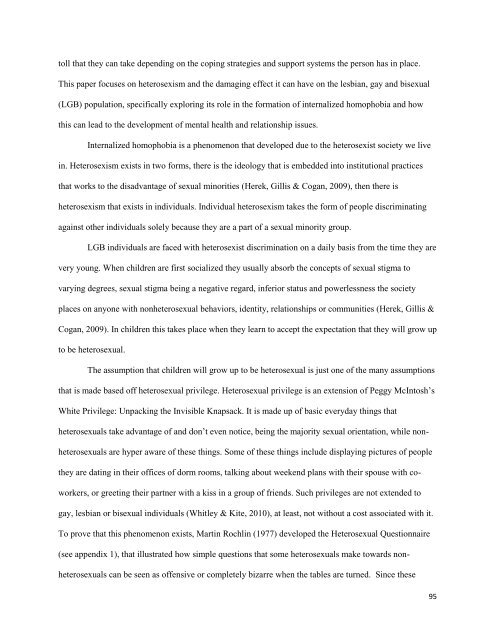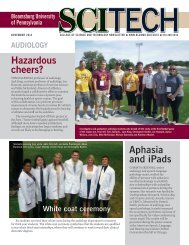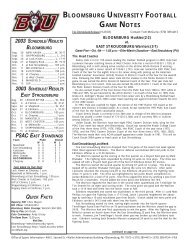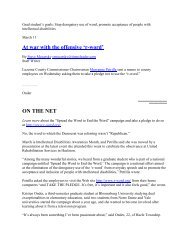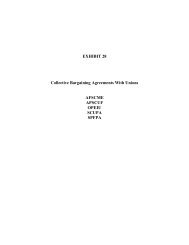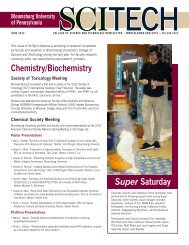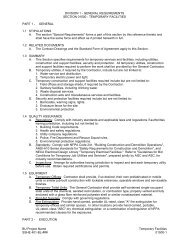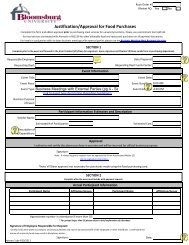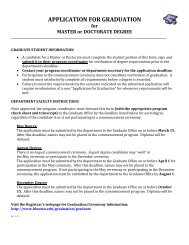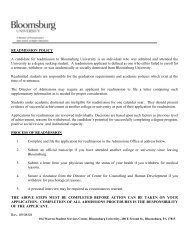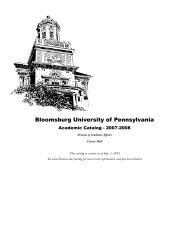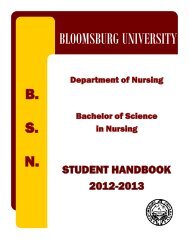Human Rights at Home and Abroad: Past, Present, and Future
Human Rights at Home and Abroad: Past, Present, and Future
Human Rights at Home and Abroad: Past, Present, and Future
You also want an ePaper? Increase the reach of your titles
YUMPU automatically turns print PDFs into web optimized ePapers that Google loves.
toll th<strong>at</strong> they can take depending on the coping str<strong>at</strong>egies <strong>and</strong> support systems the person has in place.<br />
This paper focuses on heterosexism <strong>and</strong> the damaging effect it can have on the lesbian, gay <strong>and</strong> bisexual<br />
(LGB) popul<strong>at</strong>ion, specifically exploring its role in the form<strong>at</strong>ion of internalized homophobia <strong>and</strong> how<br />
this can lead to the development of mental health <strong>and</strong> rel<strong>at</strong>ionship issues.<br />
Internalized homophobia is a phenomenon th<strong>at</strong> developed due to the heterosexist society we live<br />
in. Heterosexism exists in two forms, there is the ideology th<strong>at</strong> is embedded into institutional practices<br />
th<strong>at</strong> works to the disadvantage of sexual minorities (Herek, Gillis & Cogan, 2009), then there is<br />
heterosexism th<strong>at</strong> exists in individuals. Individual heterosexism takes the form of people discrimin<strong>at</strong>ing<br />
against other individuals solely because they are a part of a sexual minority group.<br />
LGB individuals are faced with heterosexist discrimin<strong>at</strong>ion on a daily basis from the time they are<br />
very young. When children are first socialized they usually absorb the concepts of sexual stigma to<br />
varying degrees, sexual stigma being a neg<strong>at</strong>ive regard, inferior st<strong>at</strong>us <strong>and</strong> powerlessness the society<br />
places on anyone with nonheterosexual behaviors, identity, rel<strong>at</strong>ionships or communities (Herek, Gillis &<br />
Cogan, 2009). In children this takes place when they learn to accept the expect<strong>at</strong>ion th<strong>at</strong> they will grow up<br />
to be heterosexual.<br />
The assumption th<strong>at</strong> children will grow up to be heterosexual is just one of the many assumptions<br />
th<strong>at</strong> is made based off heterosexual privilege. Heterosexual privilege is an extension of Peggy McIntosh‘s<br />
White Privilege: Unpacking the Invisible Knapsack. It is made up of basic everyday things th<strong>at</strong><br />
heterosexuals take advantage of <strong>and</strong> don‘t even notice, being the majority sexual orient<strong>at</strong>ion, while non-<br />
heterosexuals are hyper aware of these things. Some of these things include displaying pictures of people<br />
they are d<strong>at</strong>ing in their offices of dorm rooms, talking about weekend plans with their spouse with co-<br />
workers, or greeting their partner with a kiss in a group of friends. Such privileges are not extended to<br />
gay, lesbian or bisexual individuals (Whitley & Kite, 2010), <strong>at</strong> least, not without a cost associ<strong>at</strong>ed with it.<br />
To prove th<strong>at</strong> this phenomenon exists, Martin Rochlin (1977) developed the Heterosexual Questionnaire<br />
(see appendix 1), th<strong>at</strong> illustr<strong>at</strong>ed how simple questions th<strong>at</strong> some heterosexuals make towards non-<br />
heterosexuals can be seen as offensive or completely bizarre when the tables are turned. Since these<br />
95


